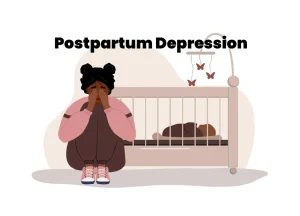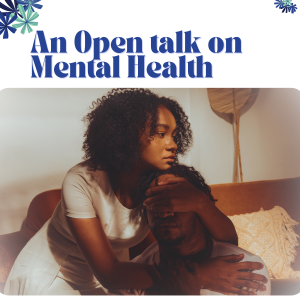Suicide
Suicide is not a mental problem in itself, but a serious potential consequence of treatable mental disorder.
Suicide is the act of taking one’s life.
Suicide terminologies
- Suicidal behaviour includes completed suicide and attempted suicide
- Thinking about, considering or planning suicide is referred to as suicidal ideation
- Completed suicide: a suicidal act that results in death
- Attempted suicide: a non-fatal, self-directed potentially harmful act intended to result in death but may or may not result in injury
- Non-suicidal self-injury: A self-inflicted act that cause pain or superficial damage but is not intended to cause death
Burden of suicide/epidemiology
- Every year, about 800,000 human beings die from suicide.
- The global annual mortality rate has been estimated by the World Health Organization (W.H.O.) to be 10.7 per 100,000 individuals
- Suicide is the one of the leading cause of premature death among individuals.
- 78% of completed suicide in LMIC’s
- Completed suicide are 3ce more common in males than female
- Suicidal attempt is commoner in females than males
Risk factors for suicide
- The primary remediable risk factor is DEPRESSION
- Mental disorders
- Use of alcohol, drugs and prescription analgesics
- Previous suicide attempts, family hx
- Serious physical disorder, especially in the elderly
- Personality disorder
Other risk factors
- Traumatic childhood experiences
- Family hx of suicide and/or mental disorders
- Also lesbian, gay and transgender individuals have a higher risk of committing suicide
- Certain professionals like the police, health care workers, fire-fighters, first responders and individuals in the army have elevated suicidal risk
- Certain socioeconomic factors like bullying or harassment, arrest, legal problems, unemployment and economic downturns
Methods of committing suicide
- Self-poisoning with pesticides
- Drowning
- Hanging
- Use of firearms
- Jumping from heights
- Carbon monoxide poisoning
- Stabbing self or slitting the throat
Signs of suicide
- Talking about suicide and death
- Talking about feeling empty, hopeless, worthless
- Feeling of guilt, shame.
- Talking about being a burden to others
- Social withdrawal or isolation
- Giving away possessions, making a will or saying goodbye
- Increase use of alcohol or drugs
- Engaging in high risk behavior
- Any unusual change in mood or behavior
- Changes in sleep pattern
- Accessing means to commit suicide
- Emotional distance
How do I help?
- Do not leave the person alone (ask for help from friends and family)
- Ask about thoughts of suicide.
- Ask the person to give you any weapons they have. Keep the person calm, stay calm and reassure.
- Keep the person calm, stay calm and reassure.
- Acknowledge that feeling are legitimate.
- Offer support and encouragement.
- Refer to the MH worker
- If possible, follow them to see the healthcare provider.
Suicide prevention
- Blocking access to respective means e.g. poisons, barriers around bridges, tall buildings, firearms.
- Community awareness Crisis intervention
- Referring them to an appropriate place for follow-up care as soon as possible
- Don’t try to minimise their problems
- Do not attempt to shame them into changing their minds
Effect of suicide
Any suicidal act has a marked emotional effect on all involved. The physician, family members, and friends may feel guilt, shame, and remorse at not having prevented a suicide, as well as anger toward the deceased or others. The physician can provide valuable assistance to the deceased’s family members and friends in dealing with their feelings of guilt and sorrow.
Conclusion
- Globally, suicide rates have increased in the population with chronic medical, mental illness including alcohol and other drug user including previous suicide attempters.
- Quality of data is poor
- Prevention is possible, therefore interventions should be put in place
- The need for the wellness center cannot be overemphasized.
SELF-HARM
Other names: deliberate self-harm Non suicidal self-injury parasuicide. Self-harm is said to happen when the person intentionally causes physical injury to oneself, without wanting to die
How common is self-harm
Difficult to give an accurate measurement
- 1 in 10 young people will self-harm at some point but can happen at any age.
- Rates higherin young people, especially females
- Also occurs in prisoners, asylum seekers and war veterans
- Young people in groups
- Gays, bisexual individuals
- Childhood history of physical, emotional or sexual abuse
Methods
The most common methods of self-harm include
- Cutting or stabbing the skin with a sharp object (e.g., knife, razorblade, needle)
- Burning the skin (typically with a cigarette)
- Jumping from high places
- Embedded objects like staples and tacks that are not for fashion
- Ingestion of strange chemicals or meds
- Hair pulling
What makes them do it?
- Feeling depressed
- Feeling bad about self
- Relationship problems with partners, friends and family
- Unemployment or having difficulty at work
- Physical or sexual abuse
- Feeling they are not listened to
- Hopeless, helpless, powerless
- Alcohol and other substance use
- To show they are in distress
How does it make them feel?
The motivations for non-suicidal self-injury are unclear, but self-injury may be
- A way to reduce tension or negative feelings
- A way to resolve interpersonal difficulties
- Self-punishment for perceived faults
- A quick-fix for feeling bad
- Gives them a sense of control
What to look out for
- Extensive patterns of scarring. Patients are often
- Preoccupied with thoughts about the injurious acts.
- Look out for scars, bruises, broken bones
- Wearing long sleeves and slacks
- Interference with wound healing
- Wanting to be alone
- Ask questions about their self-worth or identity
Does it mean I am mentally ill?
Possibly not. You may be depressed, or have personality difficulties
Danger signs
- Use of dangerous or violent methods
- Self-harm regularly
- Social withdrawal
- Have mental illness
What can I do for them?
Some patients view the self-injury as a positive activity and thus tend not to seek or accept counselling.
- Remember the person is in crisis
- Validate the person’s experience
- Remain calm, show care and compassion
- Learn more about self-harm
- Do not panic, overreact, show revulsion
- Find out about getting help
What shouldn’t I do?
- Trying to be their therapist
- Expect them to stop overnight
- Struggle with them when trying to self-harm
- Making them promise not to do it
- Feel responsible for their behaviour
Take home
- Early detection and timely intervention is key
- Self-harm should be taken seriously
- It may serve one or many different functions
- Non-judgmental emphatic response is important
- Education about self-harm
- Refer for specialist care




